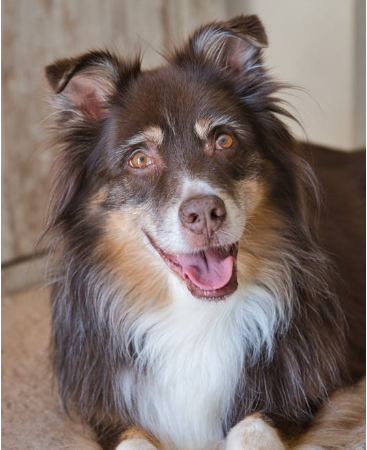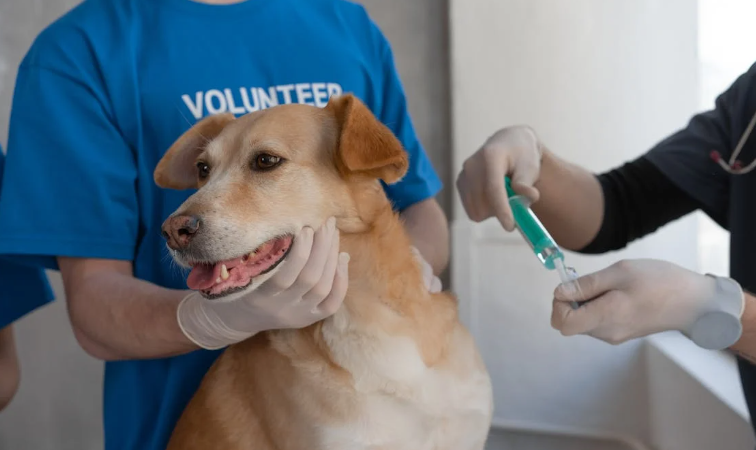Newfoundland Dog: A Gentle Giant

Introduction
Newfoundland dog, often referred to as “Newfies,” are a remarkable breed known for their massive size, gentle nature, and impressive swimming abilities. In this article, we’ll delve deeper into the fascinating world of Newfoundland dogs, exploring their history, unique characteristics, interesting facts, and tips for caring for these lovable giants.
Newfoundland Dog: A Marvel of Nature
Newfoundland Dog
The Newfoundland dog is one of the largest and strongest dog breeds globally, originally bred as working dogs in Newfoundland, Canada. Their heritage is deeply intertwined with the sea, where they assisted fishermen in hauling nets, rescuing people from the water, and even pulling carts. This strong connection to water is evident in their powerful build and webbed feet, which make them exceptional swimmers.
Newfoundland Dog: Characteristics
Appearance
Newfoundland dogs are easily recognizable by their massive size, thick double coat, and sweet expression. They typically weigh between 100 to 150 pounds and stand 26 to 28 inches tall at the shoulder. Their coat comes in various colors, including black, brown, and Landseer (white with black markings).

Temperament
Despite their imposing size, Newfoundland dogs are gentle giants known for their calm and friendly disposition. They are affectionate, patient, and great with children, earning them the nickname “nanny dog.” Newfies are also intelligent and eager to please, making them relatively easy to train.
Intelligence
Newfoundland dogs are highly intelligent and excel in various activities, including obedience training, agility, and water rescue. Their keen intelligence and willingness to learn make them versatile companions for various tasks and activities.
Food Habits
Due to their large size, Newfoundland dogs have hearty appetites and require a balanced diet to maintain optimal health. High-quality dog food, formulated for large breeds, is recommended to meet their nutritional needs. It’s essential to monitor their food intake and avoid overfeeding, as obesity can lead to health problems, such as joint issues and heart conditions.
Exercise Needs
While Newfoundland dogs may seem content lounging around the house, they actually require regular exercise to stay healthy and happy. Daily walks and play sessions are essential to prevent obesity and keep them mentally stimulated. Swimming is an excellent form of exercise for Newfies and can help them burn off excess energy.
Newfoundland Dog: Interesting Facts
1. Natural Lifeguards:
Newfoundland dogs have a natural instinct for water rescue and are equipped with webbed feet and a water-resistant coat. They have been known to save drowning people by towing them to safety or bringing them floating objects.
2. Landseer vs. Newfoundland:
While Landseer dogs resemble Newfoundland dogs, they are considered a separate breed by some kennel clubs. Landseers are primarily white with black markings, whereas Newfoundland dogs can be solid black, brown, or Landseer.
3. Famous Owners:
Throughout history, many notable figures have owned Newfoundland dogs, including Napoleon Bonaparte, Lord Byron, and J.M. Barrie, the author of Peter Pan.
4. Gentle Giants:
Despite their large size, Newfoundland dogs are known for their gentle and patient nature, especially with children. They are often described as “nanny dogs” due to their protective instincts around young ones.
5. Health Concerns:
Like all breeds, Newfoundland dogs are prone to certain health issues, including hip dysplasia, elbow dysplasia, and heart conditions. Regular veterinary check-ups and a healthy diet are essential for maintaining their well-being.
Most Liked Food:
Newfoundland dogs have hearty appetites and generally enjoy a variety of foods. However, it’s important to provide them with a balanced diet that meets their nutritional needs. Here are some food options that Newfoundland dogs may enjoy:
High-Quality Dog Food:
Choose a premium dog food formulated for large breeds or specifically for Newfoundland dogs. Look for options that list meat as the primary ingredient and are free from fillers and artificial additives.
Lean Protein Sources:
Include lean protein sources such as chicken, turkey, beef, and fish in their diet. These protein sources help support muscle growth and overall health.
Healthy Carbohydrates:
Incorporate healthy carbohydrates like brown rice, sweet potatoes, and oats into their meals. Carbohydrates provide energy and fiber, aiding in digestion.
Fruits and Vegetables:
Offer fruits and vegetables as occasional treats or meal toppers. Apples, carrots, blueberries, and green beans are nutritious options that can add variety to their diet.
Supplements:
Consider adding supplements such as fish oil or glucosamine and chondroitin to support joint health, especially as Newfoundland dogs are prone to hip and elbow dysplasia.
Water:
Ensure your Newfoundland dog has access to fresh, clean water at all times. Proper hydration is crucial for their overall well-being, especially given their affinity for swimming.
It’s essential to monitor your Newfoundland dog’s weight and adjust their food intake accordingly to prevent obesity, which can lead to health issues. Additionally, consult with your veterinarian to determine the best diet plan for your specific dog based on their age, activity level, and any underlying health conditions.
Newfoundland Dog: FAQs
Q: Are Newfoundland dogs good with children?
A: Yes, Newfoundland dogs are excellent with children. They are known for their patient and gentle nature, making them ideal family pets.
Q: Do Newfoundland dogs drool a lot?
A: Yes, Newfoundland dogs are prone to drooling, especially after eating or drinking. Keeping a towel handy can help manage drool around the house.
Q: Do Newfoundland dogs need a lot of grooming?
A: Yes, Newfoundland dogs have a thick double coat that requires regular grooming to prevent mats and tangles. Weekly brushing and occasional baths are recommended to keep their coat healthy and shiny.
Q: Are Newfoundland dogs good swimmers?
A: Yes, Newfoundland dogs are exceptional swimmers thanks to their webbed feet and water-resistant coat. They excel in water activities and are often used in water rescue operations.
Conclusion
Newfoundland dogs are truly remarkable creatures with a unique blend of strength, intelligence, and gentleness. Whether they’re saving lives at sea or snuggling with their human companions, Newfies never fail to leave a lasting impression. If you’re considering adding a Newfoundland dog to your family, be prepared for a loyal and loving companion who will enrich your life in countless ways.
For further information, please don’t hesitate to visit our website.




